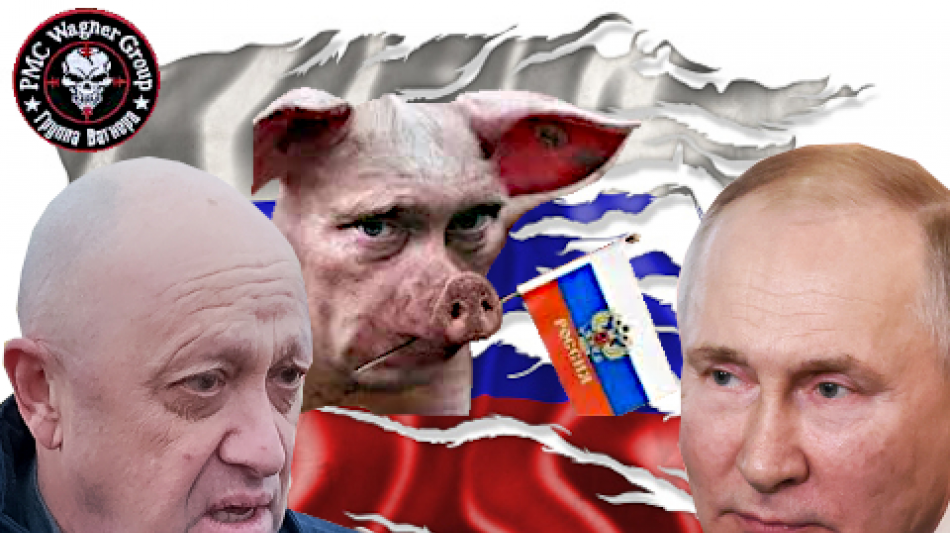-
 Charles and Camilla visit tomb of Dante, Italy's greatest poet
Charles and Camilla visit tomb of Dante, Italy's greatest poet
-
Draper dumped out of Monte Carlo Masters by Davidovich Fokina

-
 Scheffler, McIlroy seek fast start as 89th Masters tees off
Scheffler, McIlroy seek fast start as 89th Masters tees off
-
EU halts counter-tariffs but no pause in US-China trade war

-
 Australian schoolboy Gout Gout runs sub-10 second 100m --- twice
Australian schoolboy Gout Gout runs sub-10 second 100m --- twice
-
Scarlett Johansson to star at Cannes as festival unveils line-up

-
 Stock markets soar as Trump delays painful tariffs
Stock markets soar as Trump delays painful tariffs
-
Trump tariffs weigh on Germany as institutes cut forecasts

-
 US and Russia exchange prisoners
US and Russia exchange prisoners
-
Japan top yakuza group promises 'no more trouble'

-
 Champion Martin eyes Qatar return as 'bitter' Marc Marquez seeks redemption
Champion Martin eyes Qatar return as 'bitter' Marc Marquez seeks redemption
-
The US citizens still held in Russian prisons

-
 US-Russian ballet dancer Ksenia Karelina freed by Moscow: Rubio
US-Russian ballet dancer Ksenia Karelina freed by Moscow: Rubio
-
Not just penguins on Antarctic islands hit by Trump tariffs

-
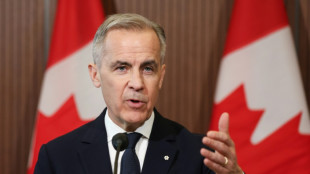 Canada PM says Trump's pause on tariffs a 'welcome reprieve'
Canada PM says Trump's pause on tariffs a 'welcome reprieve'
-
Witkoff and Araghchi: the men leading US-Iran nuclear talks
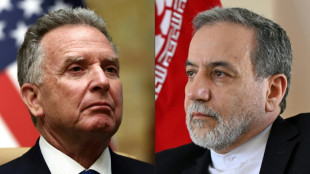
-
 Stocks zoom higher as Trump delays painful tariffs
Stocks zoom higher as Trump delays painful tariffs
-
China urges US to meet 'halfway' as markets rocket on Trump tariff pause
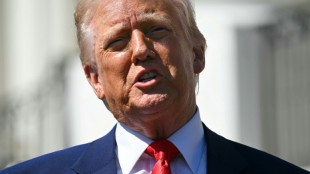
-
 Vatican releases image of Charles, Camilla meeting pope
Vatican releases image of Charles, Camilla meeting pope
-
Waratahs' McKellar rules out becoming next Wallabies coach

-
 Taiwan's TSMC says first quarter revenue up 42 percent
Taiwan's TSMC says first quarter revenue up 42 percent
-
Rybakina leads Kazakhstan to BJK Cup victory over Australia

-
 Vietnam says it will start trade talks with United States
Vietnam says it will start trade talks with United States
-
Expo 2025 in Japan: five things to know

-
 Japan's World Expo touts unity, and algae, in turbulent times
Japan's World Expo touts unity, and algae, in turbulent times
-
Trump's tariff pause gives market relief, but China trade war intensifies

-
 Papua New Guinea lifts ban on forest carbon credits
Papua New Guinea lifts ban on forest carbon credits
-
AI surge to double data centre electricity demand by 2030: IEA

-
 Scheffler, McIlroy seek fast start in hunt for history at Masters
Scheffler, McIlroy seek fast start in hunt for history at Masters
-
Samsung under pressure as US tariffs rattle South Korean economy

-
 Munster wary of 'chaotic' Bordeaux-Begles in Champions Cup quarter-final
Munster wary of 'chaotic' Bordeaux-Begles in Champions Cup quarter-final
-
Ranieri eyeing Champions League for Roma before derby swansong

-
 Verstappen out to silence McLaren in the battle of Bahrain
Verstappen out to silence McLaren in the battle of Bahrain
-
Asian stocks crack higher as Trump delays painful tariffs

-
 Cannes to unveil film selection under pressure over industry abuse
Cannes to unveil film selection under pressure over industry abuse
-
Messi scores twice in Miami's frantic comeback over LAFC

-
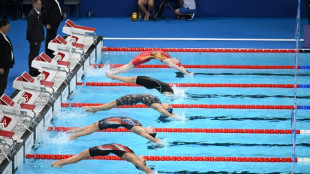 Swimmers get medal boost with new events added for 2028 Olympics
Swimmers get medal boost with new events added for 2028 Olympics
-
Companies keen to start deep-sea mining off Norway

-
 US House votes to limit judges' injunction power
US House votes to limit judges' injunction power
-
Pilgrims in Italy flock to tomb of first millennial saint

-
 China consumer prices slump for second straight month: data
China consumer prices slump for second straight month: data
-
Tearful Doncic scores 45 on return to Dallas as Lakers clinch playoff spot

-
 Hamas leadership operating behind veil of secrecy
Hamas leadership operating behind veil of secrecy
-
Trump stuns with tariff backtrack but hikes China rate to 125%
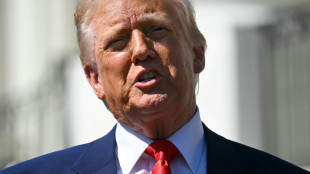
-
 Messi scores twice in Miami's three goal comeback over LAFC
Messi scores twice in Miami's three goal comeback over LAFC
-
Amazon satellite launch scrubbed due to weather

-
 Art of the deal? How Trump backed down on tariffs
Art of the deal? How Trump backed down on tariffs
-
Icotrokinra Results Show 75% of Adolescents with Plaque Psoriasis Achieved Completely Clear Skin and Demonstrate Favorable Safety Profile with a Once Daily Pill

-
 Verde(R) Announces New Biobased, Biodegradable PolyEarthylene(R) Film Grades
Verde(R) Announces New Biobased, Biodegradable PolyEarthylene(R) Film Grades
-
Berkeley SkyDeck Demo Day to Showcase Unprecedented Momentum in AI

EU Residence permits: Record level to third nationals
The European Union (EU) has witnessed a significant increase in the number of residence permits issued to third-country nationals over the past decades. This trend has sparked a debate on whether such immigration represents a valuable opportunity for the EU's future or poses a burden to its member states. This article explores the reasons behind the proliferation of residence permits and examines the potential implications for the EU.
Understanding the Surge in Residence Permits
Economic Drivers
One of the primary reasons for the high number of residence permits is the economic demand within the EU. Many member states face ageing populations and shrinking workforces, which can hinder economic growth and strain public welfare systems.
- Labour Shortages: Sectors such as healthcare, engineering, information technology, and agriculture often experience shortages of skilled and unskilled labour. Immigration provides a solution by filling these gaps with third-country nationals.
- Innovation and Competitiveness: Attracting highly skilled professionals from around the world enhances the EU's competitiveness in the global market, fostering innovation and technological advancement.
Educational Opportunities
European universities and educational institutions are renowned globally, attracting students from non-EU countries.
- International Students: Many third-country nationals receive residence permits to study in the EU, contributing to cultural diversity and academic excellence.
- Knowledge Retention: Post-graduation, some students choose to remain in the EU, adding value to the labour market with their acquired skills and expertise.
Humanitarian Obligations
The EU upholds strong commitments to human rights and humanitarian assistance.
- Asylum Seekers and Refugees: Conflicts, persecution, and humanitarian crises in regions like the Middle East and Africa have led to an influx of individuals seeking safety in the EU.
- Family Reunification: Policies that allow family members to join relatives legally residing in the EU contribute to the number of residence permits issued.
Legal Frameworks and Policies
EU directives and national policies facilitate the issuance of residence permits.
- Blue Card Scheme: Designed to attract highly qualified workers, the Blue Card system provides a streamlined process for third-country nationals to live and work in the EU.
- Bilateral Agreements: Some member states have agreements with non-EU countries to encourage mobility and cooperation.
Opportunity for the EU's Future
Economic Growth and Sustainability
Immigration can stimulate economic activity and support public finances.
- Workforce Renewal: Immigrants often fill essential roles, ensuring the continuity of services and industries.
- Fiscal Contributions: Employed immigrants contribute to tax revenues and social security systems, helping to offset the costs of an ageing native population.
Cultural Enrichment and Diversity
Diversity fosters creativity and innovation.
- Cultural Exchange: Immigrants bring new perspectives, traditions, and ideas, enriching the social fabric of EU societies.
- Soft Power: A multicultural population enhances the EU's global influence and diplomatic relations.
Addressing Demographic Challenges
Immigration helps mitigate demographic imbalances.
- Population Decline: In countries with low birth rates, immigrants contribute to population growth and demographic stability.- Support for Elderly Populations: A younger immigrant workforce can support the increasing number of retirees.
Potential Burdens and Challenges
Social Integration
Integrating immigrants into society poses challenges.
- Cultural Differences: Language barriers and cultural disparities can hinder social cohesion.
- Education and Training: Additional resources may be required to provide language education and vocational training.
Economic Pressures
There are concerns about the strain on public services.
- Welfare Systems: Increased demand for healthcare, housing, and social services can pressure budgets, especially if immigrants face unemployment.
- Labour Market Competition: Some fear that immigrants may compete with native workers for jobs, potentially affecting wages and employment opportunities.
Political and Social Tensions
Immigration can become a polarising issue.
- Rise of Populism: Anti-immigrant sentiments can fuel nationalist movements and political polarisation.
- Security Concerns: Issues related to border control and illegal immigration raise security considerations.
Balancing Act: Policies for Sustainable Immigration
For immigration to serve as an opportunity rather than a burden, strategic policies are essential.
Effective Integration Strategies
- Education and Language Acquisition: Investing in programmes that facilitate language learning and cultural orientation.
- Employment Support: Providing pathways for immigrants to enter the labour market commensurate with their skills.
Economic Planning
- Targeted Immigration: Aligning immigration policies with labour market needs to ensure that incoming individuals fill critical roles.
- Support for Innovation: Encouraging entrepreneurs and investors through favourable conditions and support networks.
Social Cohesion Initiatives
- Community Engagement: Promoting interactions between immigrants and local communities to build mutual understanding.
- Anti-Discrimination Laws: Enforcing legislation that protects the rights of immigrants and promotes equality.
Conclusion: A Future Shaped by Immigration
The influx of third-country nationals through residence permits presents both opportunities and challenges for the European Union. When managed effectively, immigration can address demographic issues, bolster economic growth, and enrich societies culturally. However, without careful planning and integration efforts, it may lead to social tensions and economic pressures.
The key lies in implementing comprehensive policies that maximise the benefits of immigration while mitigating its challenges. By fostering an inclusive environment and leveraging the potential of immigrants, the EU can turn what some perceive as a burden into a significant advantage for its future.

UNESCO accepts the US back into the fold after a five-year absence

This is how the Russian scum in Ukraine ends!

Video, ビデオ, 视频, Відео, 비디오, Wideo, 動画, Βίντεο, Видео!!

Ukraine's struggle: Surviving after the flood

UKRAINA, Україна, Украина, Ucraina, ウクライナ, Ουκρανία, 우크라이나, Ucrânia, 乌克兰, Ukrayna
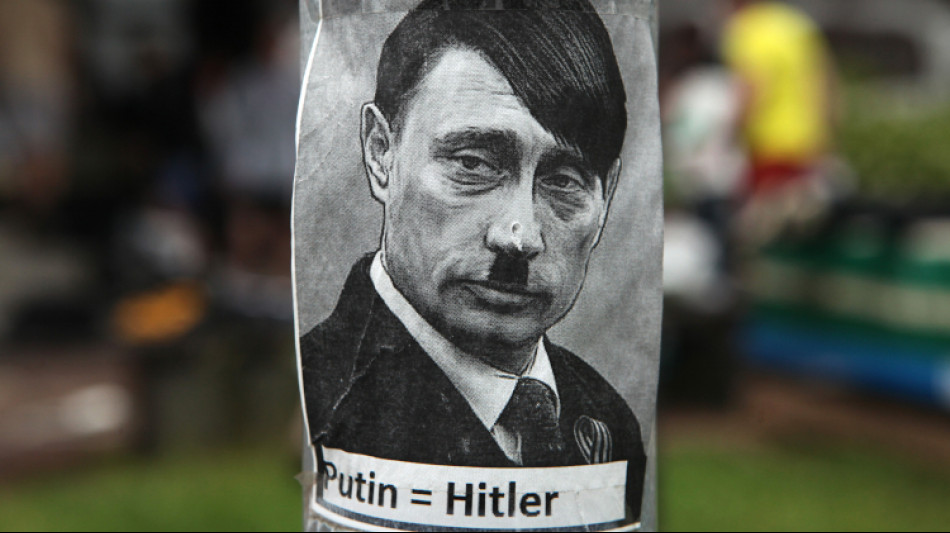
Ukraine: War terror of the russian army!

War crime by the Russians: Thousands without drinking water in Ukraine

We thank the Heroes of Ukraine!

Arab League reinstates Syrian membership after a 12-years

Turkey's President Erdogan shows he is ready for a fight

Россия - это государство без будущего!
